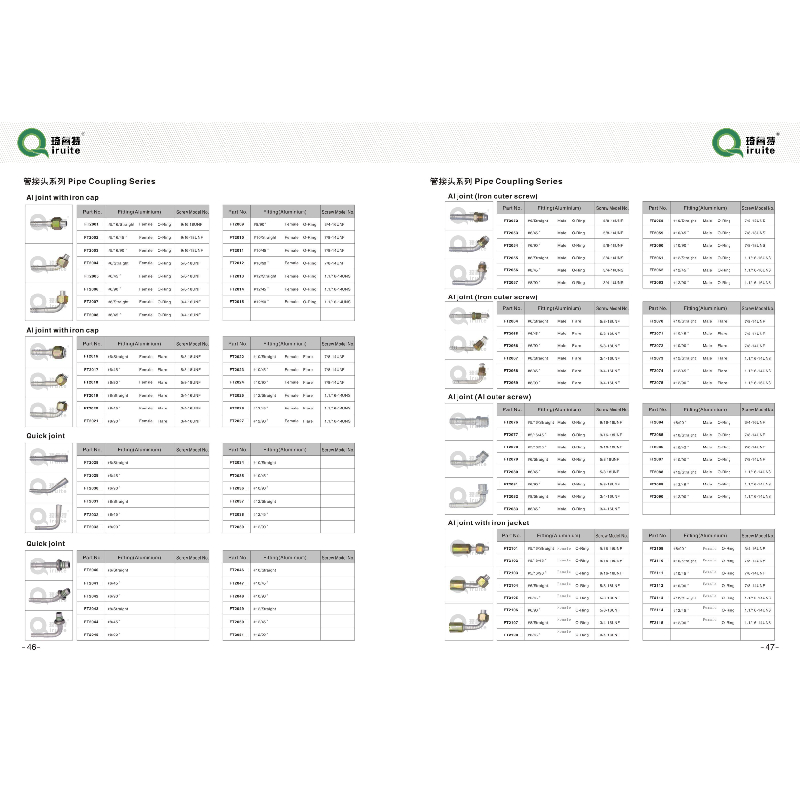Nissan Power Steering Hose Replacement and Maintenance Tips for Better Performance
Understanding Nissan Power Steering Hose Function, Maintenance, and Replacement
The power steering system is a crucial component of modern vehicles, providing the necessary assistance to allow for smooth steering and maneuverability. Among the essential elements of this system is the power steering hose, specifically designed to carry hydraulic fluid from the power steering pump to the steering gear. For Nissan vehicles, understanding the role of the power steering hose, how to maintain it, and when to replace it is vital for optimal vehicle performance.
Function of the Power Steering Hose
The power steering hose plays an integral role in the operation of the power steering system. It is responsible for transporting hydraulic fluid under high pressure. This fluid creates the necessary force to assist the driver in turning the steering wheel, reducing the effort needed, especially during low-speed maneuvers or tight turns. In Nissan vehicles, the power steering hose is designed to handle the specific pressure and flow requirements dictated by the manufacturer, ensuring effective steering performance.
Typically, Nissan cars use two types of hoses the high-pressure hose and the low-pressure hose. The high-pressure hose is crucial for carrying fluid from the pump to the steering gear, whereas the low-pressure hose returns the fluid back to the pump. It's essential that both hoses remain in good condition to prevent leaks and ensure the hydraulic system operates effectively.
Signs of Power Steering Hose Problems
Over time, power steering hoses can wear out due to exposure to high pressure, heat, and the elements. Recognizing the early signs of hose failure can save drivers from more extensive damage and costly repairs. Some common symptoms include
1. Leaking Fluid One of the most noticeable signs of a failing power steering hose is fluid leakage. If you notice puddles of reddish or brownish fluid under your Nissan, it could indicate a hose leak.
2. Difficulty Steering If you experience increased difficulty in steering or hear whining noises when turning the wheel, this can also be a sign of low fluid levels due to a leaking hose.
3. Fluid Contamination Check the condition of the power steering fluid regularly. If it appears dark and contaminated, there may be a problem with the hoses or the overall system.
4. Visible Damage Inspect the hoses for cracks, bulges, or abrasions. Any visible damage should be addressed immediately to prevent further issues.
nissan power steering hose

Maintenance of Power Steering Hoses
Regular maintenance can help extend the life of your power steering hoses and ensure optimal performance. Here are some tips
- Inspect Regularly Periodically check the power steering hoses for any signs of wear or damage. Early detection of issues can prevent more severe problems down the line.
- Change Fluid Following the manufacturer's guidelines for power steering fluid changes can help keep the system clean and prevent contamination that might affect the hoses.
- Avoid Environmental Damage Ensure that hoses are not exposed to extreme temperatures or corrosive substances. This can lead to premature wear.
- Pressure Testing If you suspect issues with your power steering system, a professional can perform pressure tests to determine if the hoses are functioning correctly.
When to Replace the Power Steering Hose
If you notice any of the signs mentioned above, it may be time to replace the power steering hose. It’s crucial to consult your vehicle’s manual for specific recommendations or take your car to a qualified mechanic. A professional assessment will determine whether a simple repair is sufficient or if a complete hose replacement is necessary.
Replacing the power steering hose in a Nissan vehicle typically involves draining the power steering fluid, detaching the old hose, and installing a new one. While it’s a task that can be performed by a DIY enthusiast with the right tools, it’s advisable to have a trained technician carry out this work to ensure that it’s done correctly and safely.
Conclusion
Understanding the importance of the power steering hose in your Nissan vehicle can aid in maintaining your car's steering performance. Regular inspection and proactive maintenance can help you avoid common problems, ensuring that your driving experience remains smooth and safe. When in doubt, seeking professional advice is always a wise choice to keep your power steering system in top shape. Keeping these tips in mind will not only help you prolong the life of your power steering hoses but also enhance the performance of your vehicle overall.
-
Ultimate Spiral Protection for Hoses & CablesNewsJun.26,2025
-
The Ultimate Quick-Connect Solutions for Every NeedNewsJun.26,2025
-
SAE J1401 Brake Hose: Reliable Choice for Safe BrakingNewsJun.26,2025
-
Reliable J2064 A/C Hoses for Real-World Cooling NeedsNewsJun.26,2025
-
Heavy-Duty Sewer Jetting Hoses Built to LastNewsJun.26,2025
-
Fix Power Steering Tube Leaks Fast – Durable & Affordable SolutionNewsJun.26,2025

